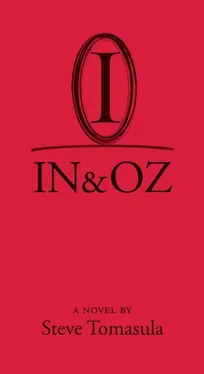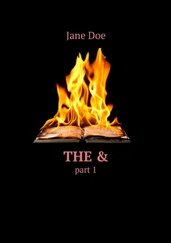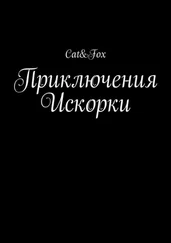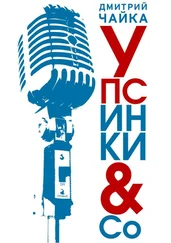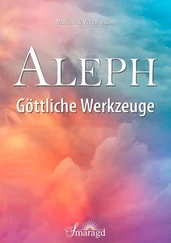With a scream he realized his hand was under the crushing kiss of the counterweight.
Photographer was standing in his camera, sunlight streaming in on his closed eyes when he heard it: a whistling so ethereal that at first he thought it was the song angels sing when a soul departs the earth. He raced to the window-aperture of his house to look out at the cars below, the whistling growing louder. Though his eyes were too clouded to see so far, he didn’t need them to tell that the music was coming from a white car. Then, there it was, slowing to pay its toll. It went out of sight as it glided beneath his home and fell silent. A moment later it started up again, and he raced to the opposite window to watch, the ethereal whistling singing an accompaniment to the prayer for the dead he recited, the car receding as it continued on its way to OZ.
Mechanic also heard the ethereal singing. He had been lying in bed, wondering if the reason he could never remember whether Photographer’s friend was a Poet or a Sculptor was because to her there was no difference. And since there was no difference, there was no word. Then he heard the whistling. To him it sounded like the song mermaids sing deep in the sea as they glide about their work of rescuing drowning sailors. The dull ache of his bandaged hand seemed to throb in rhythm, the way the rushing of the sea that a person hears when they put a conch shell to their ear was actually the roar of their own blood reverberating in the shell, and therefore in the mind. When he stilled his hand to listen, the singing stopped. Just when he thought it had only been in his mind, though, he heard it again, high above, it seemed, but fading this time, and he remained very still so he could hear it as long as possible, straining now to believe that the singing was coming from within but afraid it was simply continuing on without him….
A clatter out in the yard startled him.
Opening the door he found Poet (Sculptor) on a knee before a small mound of dirt — the tiny mound he had tripped over, then stomped flat. It was her mound, he now saw, and she was restoring it. Beyond her, out in the yard, her bicycle had fallen against the garage. The dogs were calmly sniffing its seat. The small sprocket that made the rear wheel turn was a golden rust-brown in the sunlight. The large sprocket that the pedals turned was right out in the open too, exposed as it was without a chain guard. And he was moved by the beauty of the machine’s simple logic, the teeth of its gears visible as they were, chainless as they were, the chain she had wanted him to fix still hanging like a limp line from a nail inside the garage.
He raised a hand to point to the garage, to tell her he had her chain and hadn’t forgotten about it. But as he did, she rose, catching sight of his bandaged hand, and she gasped, taking it in her own dirty fingers, and saying, “You’re hurt.”
PAWEŁ FRELIK TALKS WITH STEVE TOMASULA
PAWEŁ FRELIK: In many ways IN & OZ seems to be very autobiographical — not necessarily in a strictly personal way but when I was reading it I immediately thought of Chicago, where you grew up.
STEVE TOMASULA: Yes, you’re right. Reviewers called the novel an allegory, like Animal Farm , and it is, but I also had very specific places in mind: the rusted bridge that sutures IN to OZ; the tollbooth in the sky…. The novel begins in the neighborhood where I grew up, with its factories and cinderblock garages. A few years ago I was back there, watching two enormous German Shepherds in a tiny yard behind one of these houses. They were vicious, like junkyard dogs, not pets at all. They seemed to break their boredom by fighting. They had absolutely destroyed the yard, and I wondered why the neighbors put up with this incessant noise, and dirt. Inside the garage, though, the man who owned the dogs was working on cars, and you could see he had thousands of dollars’ worth of tools. And suddenly, it all made sense the way some strange tribal ritual makes sense to insiders. But by that time I was also enough of an outsider to think that the whole scene was bizarre…. I mean, .. we absorb so many of our habits of mind and assumptions as if they are a state of nature, while, by default, every other way of being seems unnatural. So that man and his dogs were the seeds from which the rest of the novel grew.
PF: And the title?
ST: The title comes from this coal-fired power plant on the border between the South Side of Chicago and Indiana. Fish were attracted to the warm water it discharged into Lake Michigan, and we’d sneak out onto its breakwater to fish. If you looked to one side, you could see the glitter of downtown Chicago, and if you looked in the other direction, the dark silhouettes of oil refineries and steel mills in Indiana. It was like a split screen showing two different worlds at once: like the Tower of Babel and the Tunnel of Babel… I mean, the novel could have been set anywhere — it’s not really about Chicago — even though its themes are fused with specific Chicago places.
PF: And then, there are also many cultural references…
ST: Yes, absolutely. The chain bookstore we first meet Designer in is sort of a temple to glossy, mass culture; it contrasts with the bookstore that Poet/Sculptor works in. OZ contrasts with IN, an industrial backwater that, for some, is an island the way poetry has become a kind of island. I mean, no one makes money off of poetry, but this has been its savior, what has allowed it to be more idiosyncratic — more of an art form — than bestsellers, or Hollywood movies, for example. But at the same time, it’s the thing that has marginalized it, even if these kinds of marginalizations also take from us: to build the Empire State Building, they took all the granite for its skin out of the ground in Indiana. The hole they left behind is almost a reverse image of the skyscraper: the joke was New York got the building and Indiana got the shaft. In the novel, the people of OZ also get the shaft, though, since shafts in OZ have elevators that are full of music. Or rather, what everyone in OZ comes to think of as music, but which we recognize as elevator music, which isn’t music at all. Or rather, it’s music in the way that wallpaper is art. It could be art, but usually it’s just decoration, or background entertainment to hide the noise of the elevator’s mechanics, all the ugly parts that are doing the actual work.
PF: Actually, that was one of the things that I was going to ask you about. When I read IN & OZ , I sense this kind of a parable. One of the things that goes with that is that, apart from all the cultural and autobiographical stuff, it is also a very political book.
ST: Maybe in terms of class? Back when the Vietnam War was going on, many of the houses around us had those flags parents still hang in windows to show they have children in the war: a little flag with a blue star. Some had two and even three stars. If a child was killed, the parents got a gold star to paste onto the flag.
It seems incredibly naive to say today, but I just assumed that the whole country was dense with houses displaying these flags. It was only much later, after going to college, that I met wealthier students who didn’t even know anyone in the military, and I couldn’t believe it. It was like being woken from sleepwalking to the fact that it’s normal for some people to be used as fodder to enrich others. Not just in wars, but in everyday life, in mines, and factories. I once saw a color-coded map that showed the distribution of diseases in America; that South Side of Chicago/northwest, industrial corner of Indiana — where IN is set — had so many cancers that the colors just formed a huge black smudge on the map. Yet growing up there, the fact that we could tell which direction the wind was blowing by which oil refinery, soap factory, or steel mill it smelled like seemed normal to us.
Читать дальше
